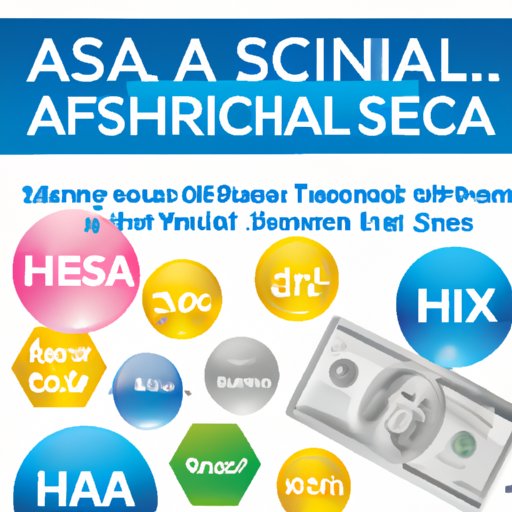Introduction
A health care flexible spending account (FSA) is a type of savings account that allows you to set aside pre-tax dollars to pay for eligible medical expenses. This type of account can be beneficial for those who have regular medical costs or need to plan for unexpected medical expenses. In this article, we’ll explore what a health care flexible spending account is, how it works, who is eligible, and the benefits of having one.
Explaining the Basics of a Health Care Flexible Spending Account
A health care flexible spending account (FSA) is a type of savings account that allows you to set aside pre-tax dollars to pay for eligible medical expenses. The money in the account is not taxable, so you save on taxes by setting aside money in an FSA. The money can be used to cover a variety of medical expenses, such as doctor’s visits, prescription drugs, and over-the-counter medications.
What is a Health Care Flexible Spending Account?
A health care flexible spending account (FSA) is a type of savings account offered by employers that allows employees to set aside pre-tax dollars to pay for eligible medical expenses. These accounts are typically funded through employee payroll deductions. The money in the account is not taxable, so you save on taxes by setting aside money in an FSA.
How to Utilize a Health Care Flexible Spending Account
When you set up a health care flexible spending account, you designate how much you want to contribute each year. Your employer will then deduct the designated amount from your paycheck and deposit it into your FSA. You can then use the funds to pay for eligible medical expenses. It is important to note that any unused funds in your FSA at the end of the year will be forfeited, so it is important to plan carefully when setting up your account.
Who is Eligible for a Health Care Flexible Spending Account?
In order to be eligible for a health care flexible spending account, you must be an employee of a company that offers FSAs. Generally, only full-time employees are eligible to participate in an FSA. Part-time employees may also be eligible depending on their employer’s policies.

Benefits of Having a Health Care Flexible Spending Account
There are many benefits to having a health care flexible spending account. Not only can you save on taxes, but you can also save money on common medical expenses. Here are some of the key benefits of having an FSA.
Tax Advantages of a Health Care Flexible Spending Account
One of the biggest benefits of having a health care flexible spending account is the tax advantages. Since the money in the account is not taxable, you save on taxes by setting aside money in an FSA. This means that you get to keep more of your hard-earned money and put it towards medical expenses instead of paying taxes on it.
Common Expenses Covered by a Health Care Flexible Spending Account
Health care flexible spending accounts can be used to cover a variety of medical expenses, including doctor’s visits, prescription drugs, over-the-counter medications, and even dental and vision care. Some FSAs may also cover other medical expenses such as acupuncture, chiropractic care, and fertility treatments.

Comparing Health Care Flexible Spending Accounts to Other Types of Accounts
When considering whether or not to set up a health care flexible spending account, it is important to compare it to other types of accounts. Here is a quick comparison of FSAs to traditional savings accounts and health savings accounts.
Traditional Savings Accounts
Traditional savings accounts are a great way to save money, but they do not offer the same tax advantages as FSAs. With a traditional savings account, you pay taxes on the interest earned, while with an FSA, you do not pay taxes on the money deposited or withdrawn. Additionally, traditional savings accounts cannot be used to pay for medical expenses.
Health Savings Accounts
Health savings accounts (HSAs) are similar to FSAs in that they allow you to set aside pre-tax dollars for medical expenses. However, HSAs have higher contribution limits than FSAs and the money in the account can roll over from year to year. Additionally, HSAs are only available to those with high deductible health plans, whereas FSAs are available to anyone regardless of their health plan.
Conclusion
A health care flexible spending account (FSA) is a great way to save money on medical expenses. With an FSA, you can set aside pre-tax dollars to pay for eligible medical expenses, which can result in significant tax savings. Additionally, FSAs can be used to cover a variety of medical expenses, including doctor’s visits, prescription drugs, and even dental and vision care. For those looking to save money on medical expenses, a health care flexible spending account may be the right choice.
(Note: Is this article not meeting your expectations? Do you have knowledge or insights to share? Unlock new opportunities and expand your reach by joining our authors team. Click Registration to join us and share your expertise with our readers.)
